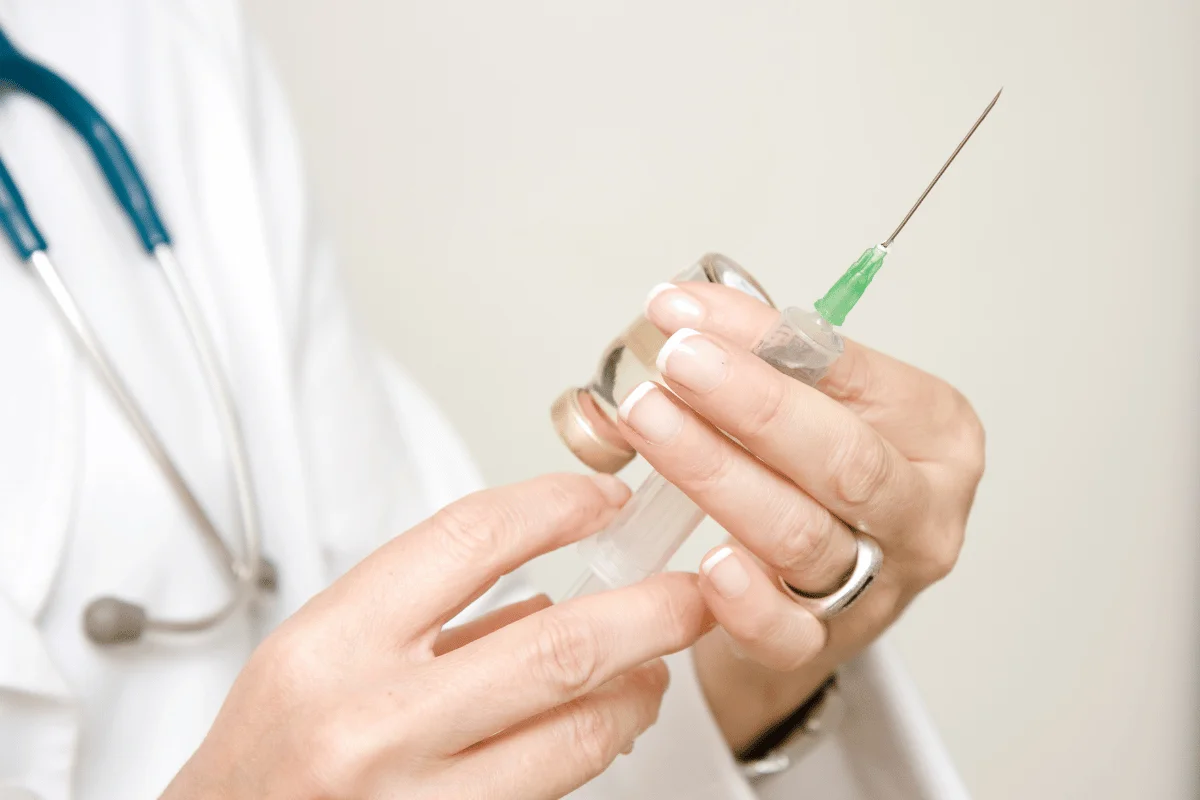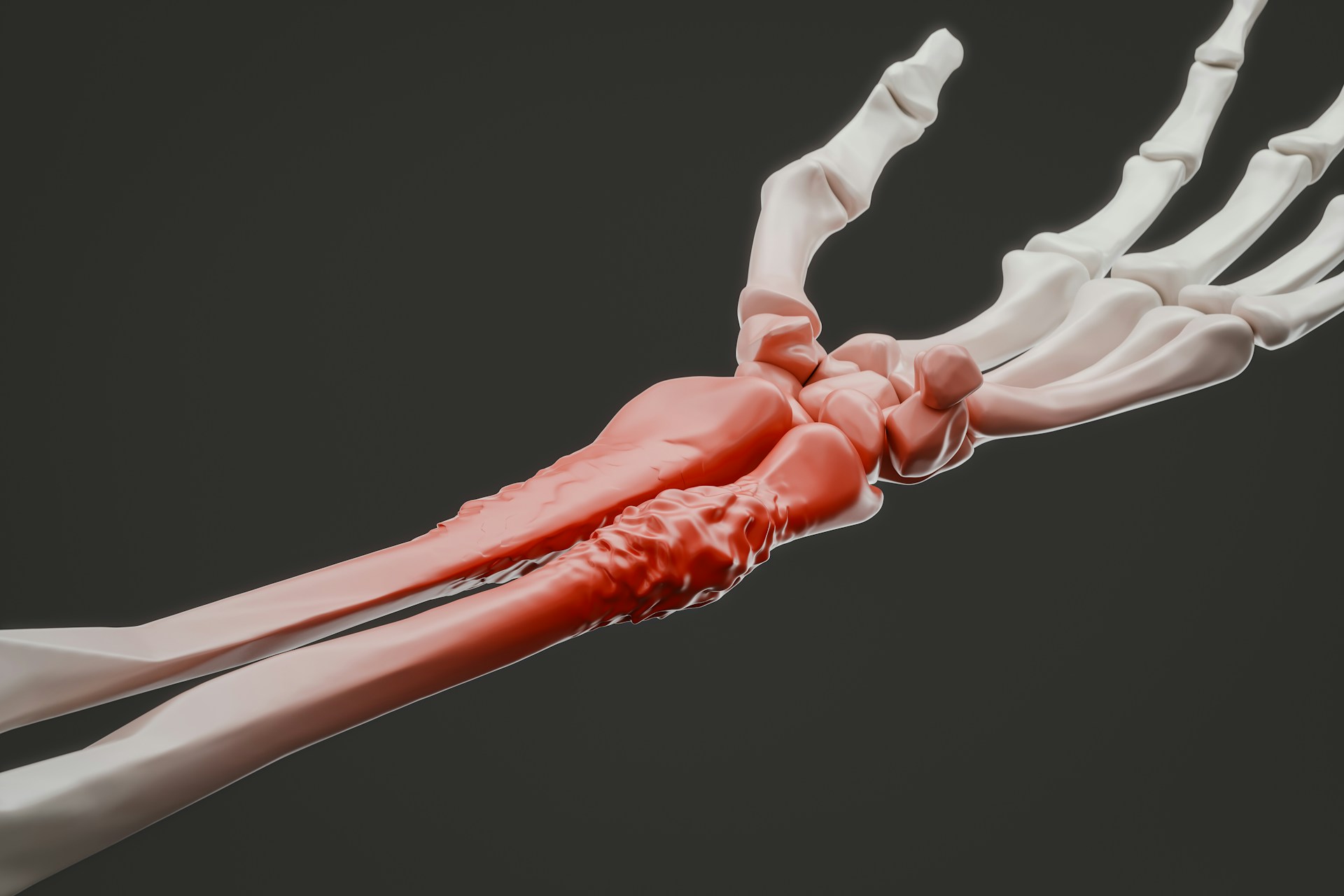[IMPORTANT DISCLAIMER: This article is for informational purposes only and should not be considered medical advice. Dihexa is an experimental compound not approved by the FDA for human use. The information presented here is based on available research and user experiences but may not represent all possible risks or side effects.]
Cognitive decline is becoming a major concern across the United States.
Subjective Cognitive Decline, or SCD (when you notice your memory or thinking worsening), affects about one in nine adults. That’s more than 16 million Americans—twice the entire population of New York City!
That’s why many people are looking into ways to protect their brain health. Dihexa has been marketed by many as a promising peptide therapy for fighting age-related cognitive decline.
But how safe is this compound for humans?
We’ll explore everything you need to know about Dihexa’s safety profile based on the current scientific evidence available.
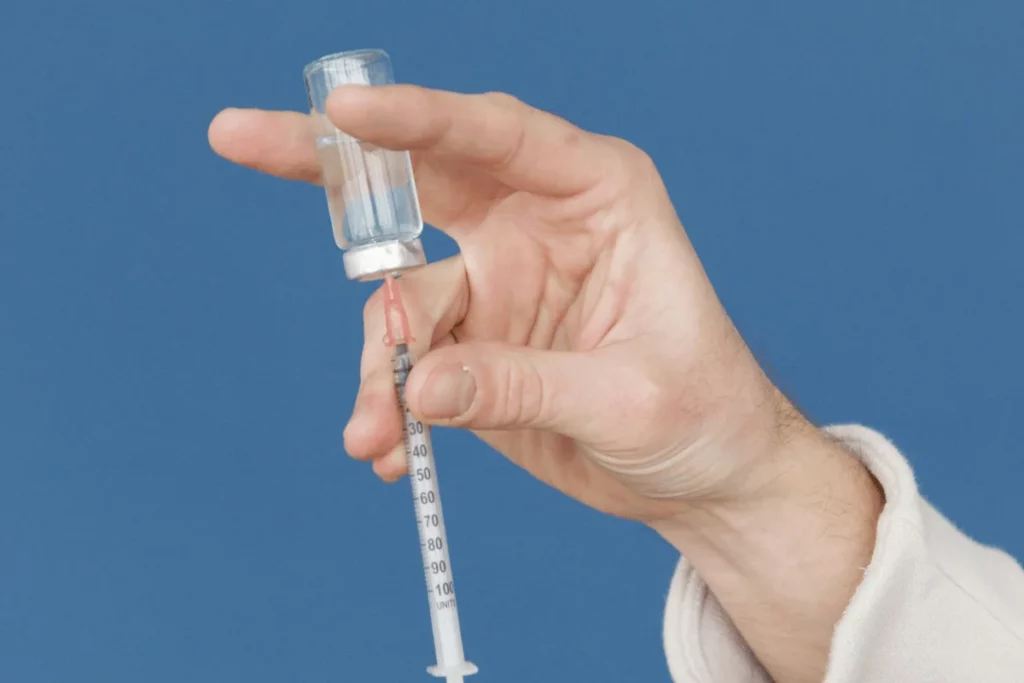
What is Dihexa? What is Dihexa Used For?
Dihexa (also known as PNB-0408) is a specially designed peptide – a small chain of six amino acids – that scientists developed to help with brain function.
But there’s an interesting story behind its creation that you should know about.
It all started with something called Angiotensin IV (Ang IV), a natural compound in our bodies that helps control blood flow and, surprisingly, shows promise for improving memory and learning.
However, there was a big problem: Ang IV breaks down too quickly in the body to be useful as a medication.
This is where Dr. Joseph Harding and his team at Washington State University stepped in during the early 1990s.
They spent nearly 20 years designing a better version of Ang IV. After many trials and setbacks, they finally created Dihexa in 2007.
What makes Dihexa special? Three key things:
- It can be taken orally (unlike many similar compounds)
- It stays stable in your body long enough to work
- It can cross the blood-brain barrier (basically, it can reach your brain where it needs to work)
The potential benefits of Dihexa are pretty remarkable, especially for brain health:
For medical conditions:
- Shows promise in treating Alzheimer’s disease (unlike current medications that just slow things down, Dihexa might help repair brain damage)
- Being investigated for Parkinson’s disease treatment
- It could help with various types of cognitive decline.
For healthy individuals (based on user reports):
- Better information processing
- Improved reaction time
- Enhanced problem-solving abilities
- Better verbal communication
- Improved creativity
- Reduced anxiety levels
Fun fact: In 2012, researchers tested Dihexa on rats with Alzheimer ‘s-like symptoms, and the results were impressive.
The rats showed significantly improved learning and memory, performing better in maze tests than expected. This success has led to further development, and a newer version called ATH-1017 is now in Phase II clinical trials.
Remember, despite these promising findings, there were only 17 published studies on PubMed between 1992 and 2024, so there’s still much to learn about this compound.
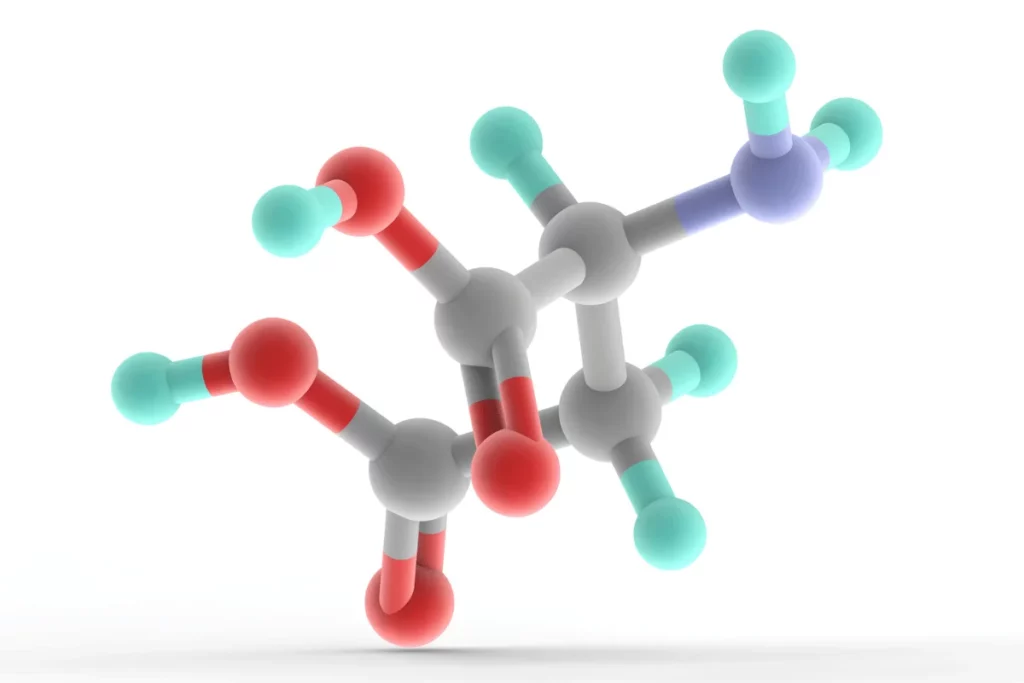
Is Dihexa Safe?
The safety profile of Dihexa remains largely unknown due to limited clinical research.
While preliminary animal studies haven’t revealed immediate severe toxicity, you must know about these safety considerations:
- No formal human clinical trials have been completed.
- Long-term safety data is lacking.
- The compound has a remarkably long half-life of 12-13 days in animal studies – this means it stays in your system for a very long time.
- Potential cancer risks need further investigation due to the compound’s effects on cell growth pathways.
The extended half-life is particularly concerning from a safety standpoint because if something goes wrong, you can’t simply stop taking it and expect the effects to wear off quickly.
Also, this long duration in your system means any unintended interactions with other medications or supplements could be prolonged and potentially more serious.
You should exercise extreme caution and consult a doctor before considering use.
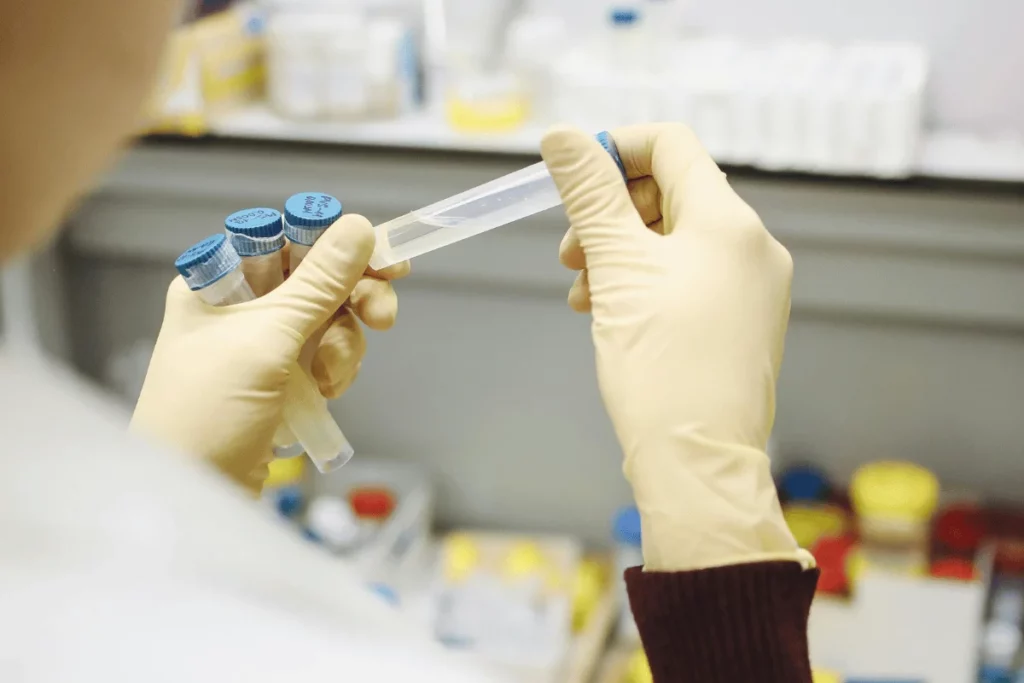
Potential Side Effects of Dihexa
Regarding Dihexa’s safety profile, we’re still in somewhat uncharted territory.
Initial research seems promising, but we still need to learn a lot about this compound’s potential side effects.
Let us break down what we currently know:
Current Safety Status
According to Dr. Joseph Harding’s patent filings, short-term safety studies show that Dihexa appears non-toxic.
A significant finding was the absence of any cancer-promoting activity. This was a reassuring discovery since the compound’s mechanism of action initially raised concerns about potential cancer risks.
Scientists are actively working on creating improved versions of Dihexa, focusing on making it:
- Easier for your body to process
- Better at crossing the blood-brain barrier
- More stable and effective when taken orally
Reported Side Effects
While there haven’t been formal clinical trials in humans, biohackers who’ve experimented with Dihexa for around 14 days have reported several side effects you should be aware of:
- Changes in Cognitive Function:
- “Autistic-like” symptoms, particularly increased hyperfocus
- Attention deficit issues
- Benefits appear most noticeable during active mental tasks (like studying or creative work) but not during passive activities.
- Physical Effects:
- Water retention
- Headaches
- Variable Response:
- Some users report no noticeable effects.
- Others find it less effective than established nootropics like Modafinil.
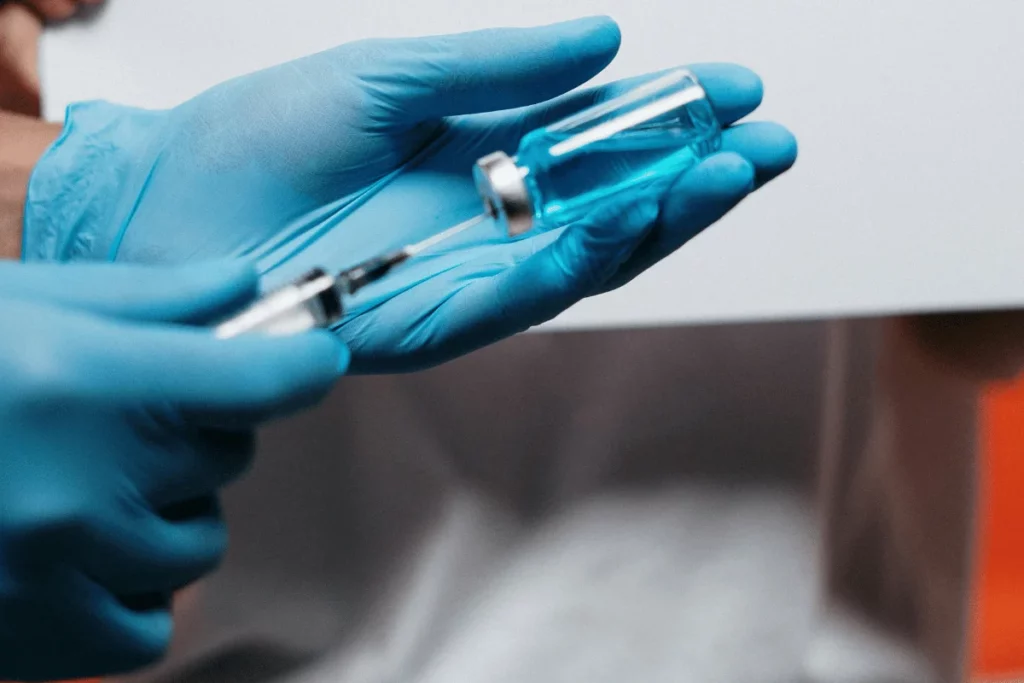
Important Considerations
Dihexa might not work effectively if your overall brain health isn’t optimized first.
Several factors can limit its effectiveness:
- Lack of regular exercise
- Obesity
- Diabetes
- High blood pressure
- Limited mental stimulation
- Smoking
The key to getting the most out of any cognitive enhancer is starting with a healthy foundation.
Optimize your basic health before experimenting with peptides.
A Note of Caution
Since Dihexa was developed in the 1990s and is still relatively new from a development standpoint, these reported side effects aren’t medically confirmed.
It might be more suitable for treating actual neurological damage rather than enhancing already healthy cognition.
Dihexa is not a replacement for professional psychiatric care, though. If you’re experiencing cognitive issues, consult a licensed psychiatrist first.

Factors that May Influence Side Effects
Several factors can impact how individuals respond to Dihexa:
Dosage
Finding the right dosage of Dihexa is challenging since we lack human clinical trials to guide us.
Based on user reports and all the anecdotal evidence we linked above, most people who experiment with Dihexa use between 8 and 45mg daily, though this range is not scientifically validated.
The method of taking Dihexa varies:
- Many users prefer applying it as a cream to their inner forearms
- Research studies in mice used intravenous injections
- ATH-1017 (a newer version that converts to Dihexa in the body) is given as a daily subcutaneous injection
Without proper clinical studies, we cannot define a “safe” dose range. What works for one person might be too much for another, and the long-term effects of various doses remain unknown.
Genetic Differences
Like many drugs, people may metabolize or respond differently to Dihexa based on genetic variables influencing absorption, brain chemistry, and more.
For instance, gene expression patterns can alter the number and types of receptors Dihexa binds to.
More extreme neurological changes could occur if these receptors are overly abundant or sensitive, increasing risks.
Health Status
Underlying health issues, particularly undiagnosed neurological or mental illnesses, could predispose someone to adverse effects from neurological modulation with Dihexa.
For example, people with bipolar disorder anecdotally warn that even therapeutic, doctor-prescribed stimulants can trigger manic episodes.
Dihexa could theoretically have similar consequences by increasing neurological excitability.
Also, if someone has an existing cancer, taking Dihexa could cause the cancer to grow and spread more quickly since it increases cell growth.
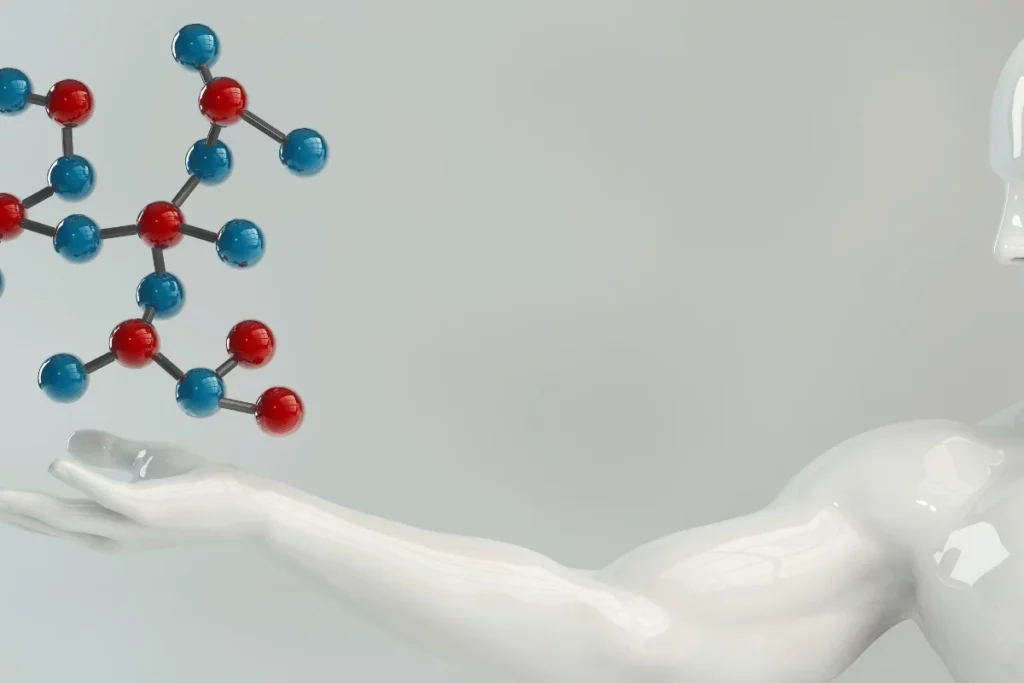
How to Mitigate Dihexa Side Effects
Strategies for minimizing adverse reactions center heavily on responsible, informed usage:
- Get Medical Advice: Consult a doctor before starting, especially if you have any health conditions. Routine screening for cancers may also be recommended.
- Start Low, Go Slow: Begin with small doses that gradually increase over weeks. Be attuned to subtle changes that could signal side effects.
- Avoid Everyday Use: Using Dihexa sporadically instead of daily (as it has a very long half-life) may help prevent neuronal overstimulation (a condition where your brain is overwhelmed by the stimulus – Dihexa).
- Watch for Interactions: Be aware of potentially hazardous interactions with medications, other peptides, or supplements acting on neurological pathways.
- Discontinue If Concerns Arise: If any discomforting symptoms manifest, quit use and notify your doctor.
You’ll also need to educate yourself on how to get peptides like Dihexa properly and legally if you intend to try it.
Only obtaining compounds from reputable sources can help reduce risks from contamination or concentration issues.
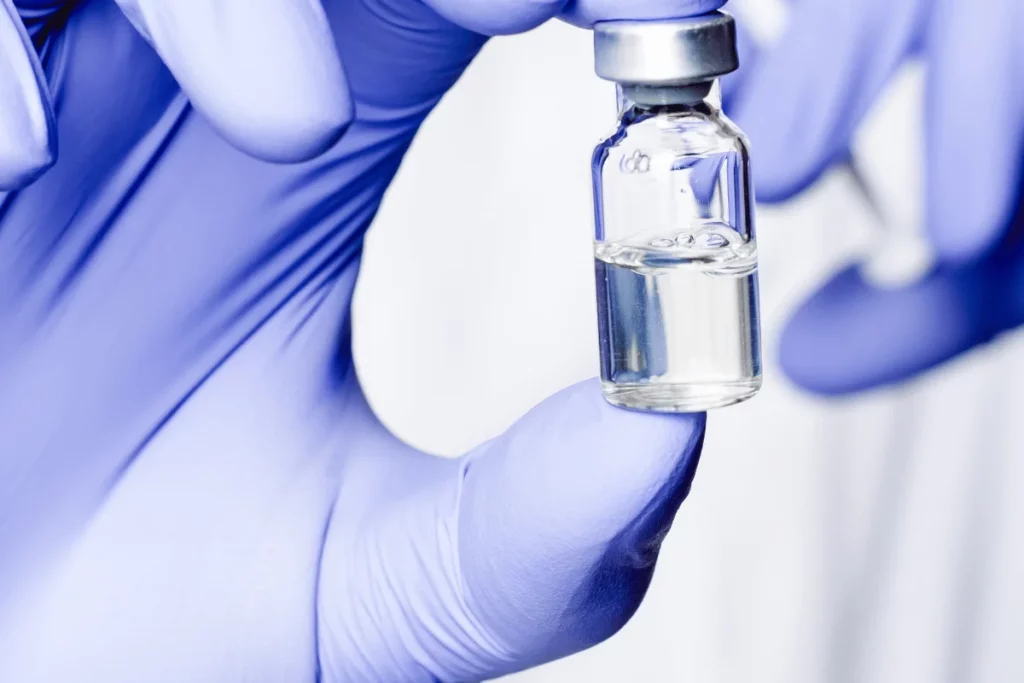
Frequently Asked Questions (FAQs)
Let’s address some common questions about Dihexa side effects:
Is Dihexa Legal to Use?
Dihexa is not an approved medication or supplement at this time. It remains under investigation solely for research purposes. Buying or selling Dihexa peptides is typically prohibited outside of clinical trials.
However, loopholes do allow some companies to provide Dihexa peptides for supposed “research purposes only,” often without thorough verification procedures.
Be extremely cautious of online sellers who claim cognitive benefits in humans. Do your homework to understand if the peptides are legal for individual use and the restrictions around compounds like Dihexa.
Strictly avoid Dihexa products that market themselves as “dietary supplements.”
Does Dihexa Interact with Other Medications?
No formal drug interaction studies exist.
However, there may be some potential interactions with:
- Cognitive enhancers
- Antidepressants
- Stimulants
Is It Safe to Use Dihexa During Pregnancy?
No studies have evaluated Dihexa’s safety during pregnancy or breastfeeding.
Given the unknown risks and its effects on cell growth pathways, avoiding use during pregnancy is strongly advised.
Conclusion – Dihexa Peptide Side Effects
Animal research makes Dihexa seem like it could help improve brain function and heal neurological damage.
However, there haven’t been controlled human trials yet.
So, there are still big questions around the right dosing, how genetics influences effects, other health factors, and potential side effects.
If you decide to experiment with Dihexa on your own, it’s extremely important to work with someone with experience and knowledge of using these novel peptide molecules.
Hopefully, in the next few years, studies will help clarify whether this peptide can transition beyond labs and safely be used as a medication or supplement to boost brainpower.


